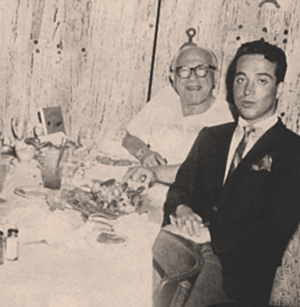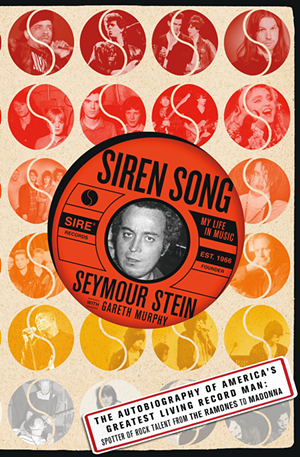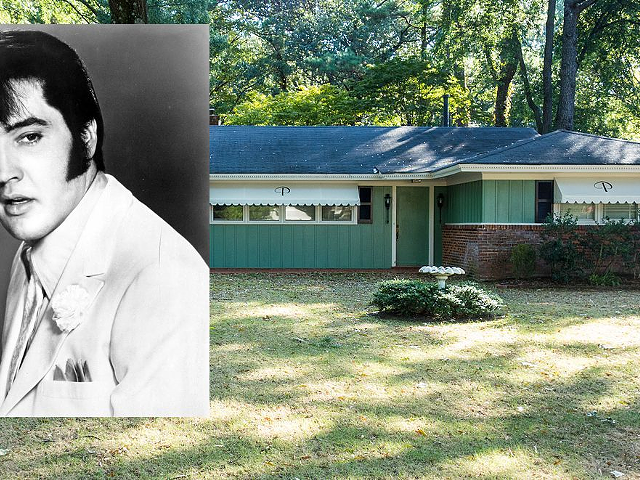When the renowned record company executive-turned-author Seymour Stein speaks in Cincinnati at the Main Library on Dec. 1, it will be a homecoming of sorts. Stein’s first job at a record label was with Syd Nathan’s King Records, back in the 1950s. Stein’s appearance here underscores yet another way King has had such an ongoing, outsized influence on popular culture.
Indeed, as Stein’s career shows, without King and Nathan, Punk Rock might never have had the impact on American popular culture that it has had.
The Nathan/Punk connection comes from the fact Stein, one of the great “record men” of Rock’s golden era, came from his Brooklyn high school to Cincinnati during the summers of 1957 and 1958 to intern at King. He returned in 1961 as an employee.
Stein later would establish, with partner Richard Gottehrer, a production company and label called Sire Records, which went on to sign and promote such key American Punk bands as The Ramones, Talking Heads and Richard Hell and the Voidoids. (Stein also signed Madonna.) Sire was named in tribute to King — continuing a royalty theme — and also because it contained two letters of each partner’s first name. In a 2017 Variety poll, Sire was ranked as the 15th favorite record label of the 20th century.
When Stein was trying to start Sire in 1966, Nathan helped him out.
“Syd had closed his New York office and offered to rent me (a) floor of the building at a very low price, which was a big help,” says Stein, 76, in a telephone interview. “We, in fact, took the biggest room and then rented to people we knew in the music-management business. He rented to me for $235 a month, very cheap to begin with, and we rented one big room for $150. So we were paying under $100 a month for prime space in New York.”
Stein’s relationship with Nathan forms the foundation for his recently published memoir Siren Song: My Life in Music (written with Gareth Murphy).
“I loved the man; my book is dedicated to him,” Stein says. “I wanted to call the book Shellac in His Veins, because that’s what he said to my father about me. But the publishers wouldn’t let me. They probably were right, nobody would know what I was talking about.” (The resin shellac was the material used to manufacture phonograph records until vinyl replaced it in the 1950s.)
Stein met Nathan in 1955, when he was just a music-loving 13-year-old school kid (still known as Seymour Steinbigle) who would hang around the New York editorial offices of Billboard, the publication that chronicled the recorded-music industry. He had discovered a love for music earlier, when he was 8 — one record that especially enchanted him was Cincinnati group Otis Williams and the Charms’ early Doo-Wop classic “Hearts of Stone,” a smash hit in 1954 for King. Stein started coming to Billboard to copy and study its best-sellers charts. The editors took a liking to him and let him attend their music review meetings with record company owners, including those from the era’s many small, independent labels that issued so many now-classic R&B, Rock, Country and other singles.
He vividly describes the first meeting with Nathan in Siren Song. “When Syd Nathan spoke, which he liked to do, it was best to focus on his mouth, where this fur-balled wheeze, a result of chronic asthma, emitted the most fabulous show business spiel I’d ever heard,” Stein writes. “His lungs and vocal cords were so shot, he had to strain at his highest register to get the words out. Syd talked and talked this high-voltage chaos of knowledge, gags and anecdotes, stuff coming in from all angles.”
After that meeting, Stein told Nathan he had bought some King records by artists like Hank Ballard. That impressed Nathan, and a friendship — a mentorship — developed whenever Nathan came to New York.
“He was in many ways like a second father to me,” Stein says. “I had a most wonderful father — and mother, too. My father was so totally different from Syd. He was quite Orthodox (Jewish). Syd respected that. And my father thought Syd was the greatest for taking me under his wing.”
In 1957, Stein came to Cincinnati for the first of two summers as a King intern. Nathan picked him up at the airport in his Buick. In the book, Stein recalls how Nathan “drove us down the highway, squinting ominously out of his portal glasses. This I hadn’t been expecting. A man this blind should never have been given a license.”
In 1961, Nathan hired Stein to work at King full-time as an A&R and publicity trainee. He also set to work on trying to
change Stein’s last name. But Stein resisted until the operator at King’s Evanston office one afternoon announced a call for “Seymour Steinbigle” several times over the loudspeaker: That annoyed Nathan to no end, and he used the same loudspeaker to give an order: “It’s Stein or Beagle or back to New York!”“So I picked the simplicity of Seymour Stein, and sure enough, I never had to spell my name out again,” Stein writes in Siren Song.
After two years, Stein returned to New York and began to establish himself independently. Just this year, he departed his job as president of Sire Records and also vice president of Warner Bros. Records.
Stein, one of the Rock and Roll Hall of Fame's co-founders, wanted the Hall to induct Nathan as a non-performer member, which it did in 1997.
“I didn’t want to nominate him because it was too obvious — everyone knows how much I loved him,” he says. “But I pushed it and pushed it, and I helped.”
Stein still finds inspiration in the life of Nathan, who died in 1968.
“He wasn’t healthy and it didn’t stop him,” he says. “He overcame so much. But he had great ears, great taste. He made snap decisions, and I do too, in part (because) I learned from him. If you want something, go for it right away before someone else goes for it and gets it.”
Seymour Stein will be in conversation with Shake It Records co-owner Darren Blase, and then answer audience questions and sign his book, at 3 p.m. Dec. 1 at the Reading Garden Lounge of Cincinnati’s Main Library, 800 Vine St., Downtown. More info: cincinnatilibrary.org, here and here.








